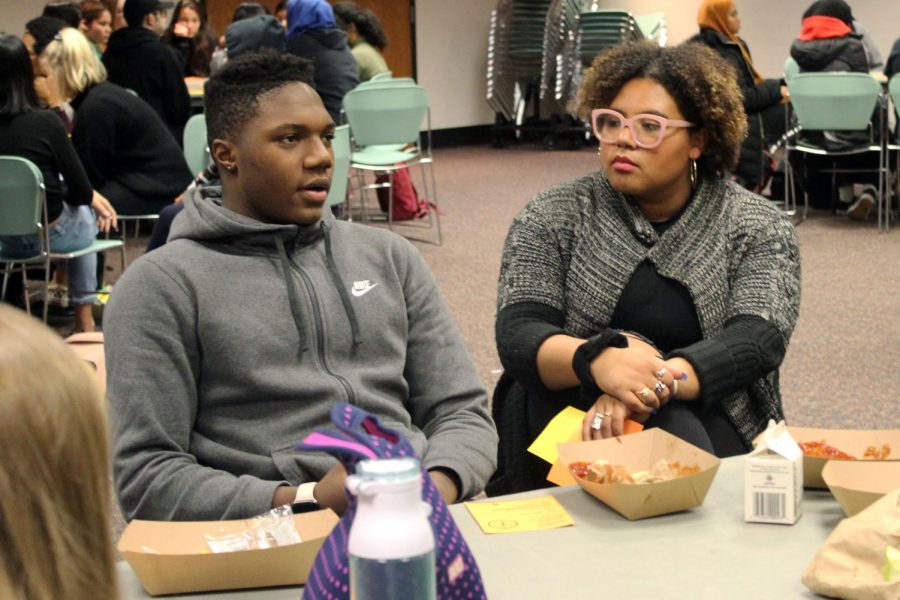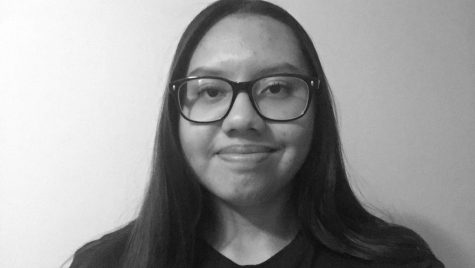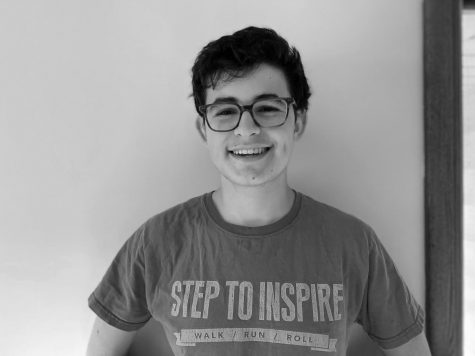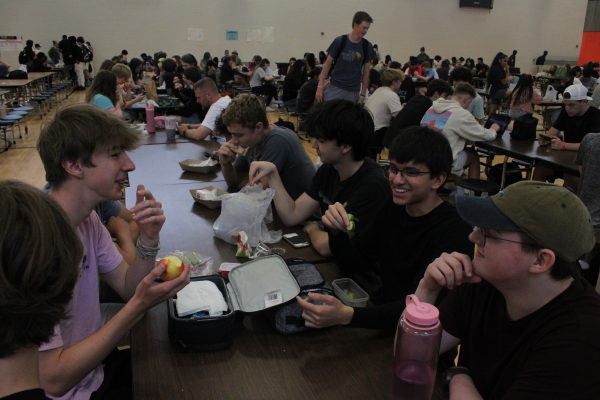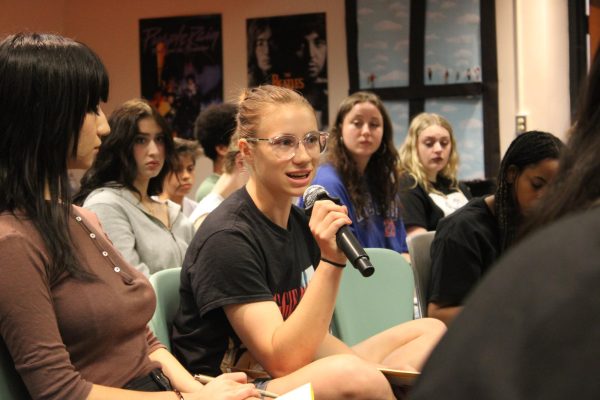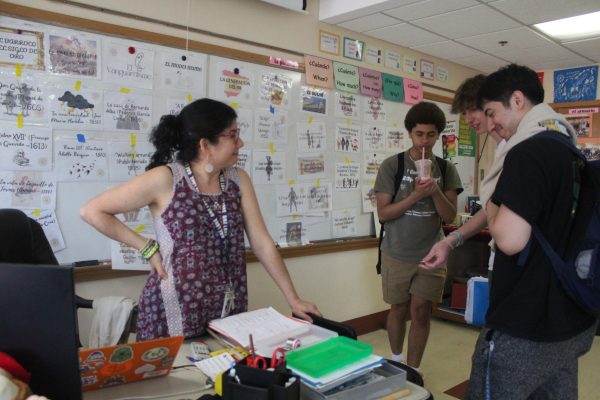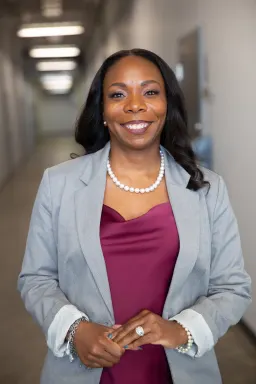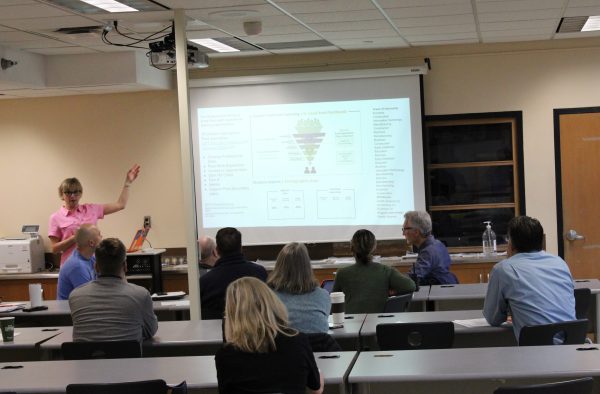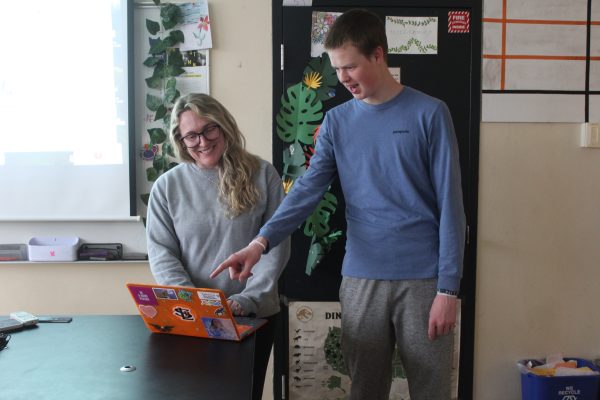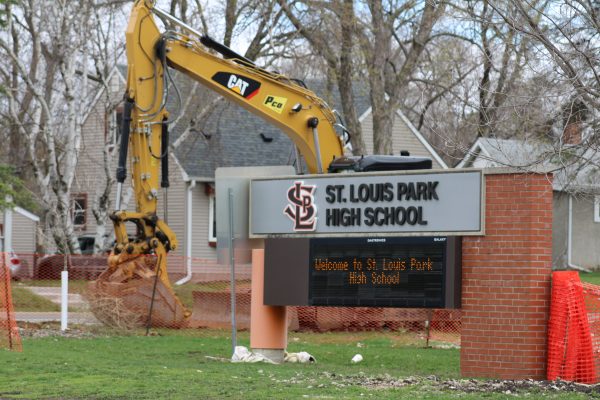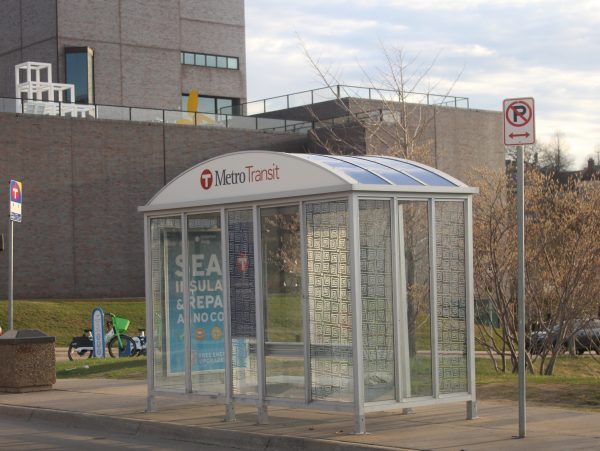SOAR initiates discussion
Club brings students together to discuss, normalize racial issues
Sophmore Kendrick Ross Jr. reflects on his experiences with race and identity while his peers listen intently at the Students Organized for Anti-Racism event Nov. 25. Senior Amaya Foku leads the conversation throughout the meeting.
November 27, 2019
As freshman Sharon Lunasilva reflects upon the in-school Students Organized for Anti-Racism event, she said she hasn’t always felt comfortable discussing race in school, but the event gave her the opportunity to talk about her experiences.
“As a mixed person, race is something that I’m really passionate about,” Lunasilva said. “It’s good to have an environment where you can talk about (racial issues) freely without feeling uncomfortable.”
According to adviser Dr. Lee-Ann Stephens, Students Organized for Anti-Racism (SOAR) drew roughly 70 people to its meeting Nov. 25 in order to foster discussions surrounding race.
“Although race is a social construct, the meaning of it is lived out every single day. It’s important for us to know other people’s stories and other people’s perspectives around race,” Stephens said. “The more we know, the less fear we have, the less assumptions we make, the less biases we have. The more we talk about it, the more we are brought together.”
The SOAR meeting offered students the opportunity to impact of race on the learning environment and students’ general experiences within Park, according to freshman attendee Cecilia Meyen.
Race is very much a part of how we live our lives and how we navigate space and time. The more we talk about it, the more normalized it will be and the less fear students will have of saying the wrong thing.
— Dr. Lee-Ann Stephens
“We were talking about how race affects us and our experiences, how race is portrayed in schools and how we feel in school talking about race with our teachers and other peers,” Meyen said. “It was a really safe environment. It was like everybody was there for a reason and we were all comfortable talking about (race).”
Lunasilva said attendees also discussed how to initiate broader conversations surrounding race within Park, however, it is ultimately the responsibility of each student to educate themselves.
“A lot of the seniors proposed (ideas for) what the school could do to bring more awareness about race,” Lunasilva said. “Everyone is their own individual person and they have their own mindset and their own morals, so even if you did make programs, you couldn’t go around changing every single student in the school.”
Stephens said it is important to normalize discussion of race through classrooms and learning sessions, as well as organizing events such as the one on Monday.
“It’s not racist to talk about race,” Stephens said. “Race is very much a part of how we live our lives and how we navigate space and time. The more we talk about it, the more normalized it will be and the less fear students will have of saying the wrong thing.”
Stephens said SOAR will continue to create space for discussions surrounding race and hopes to involve more students in the future.
“I heard students really wanting to do it again,” Stephens said. “They really appreciated having the space to be able to have the conversation, which they haven’t felt that they’ve really been able to have.”



